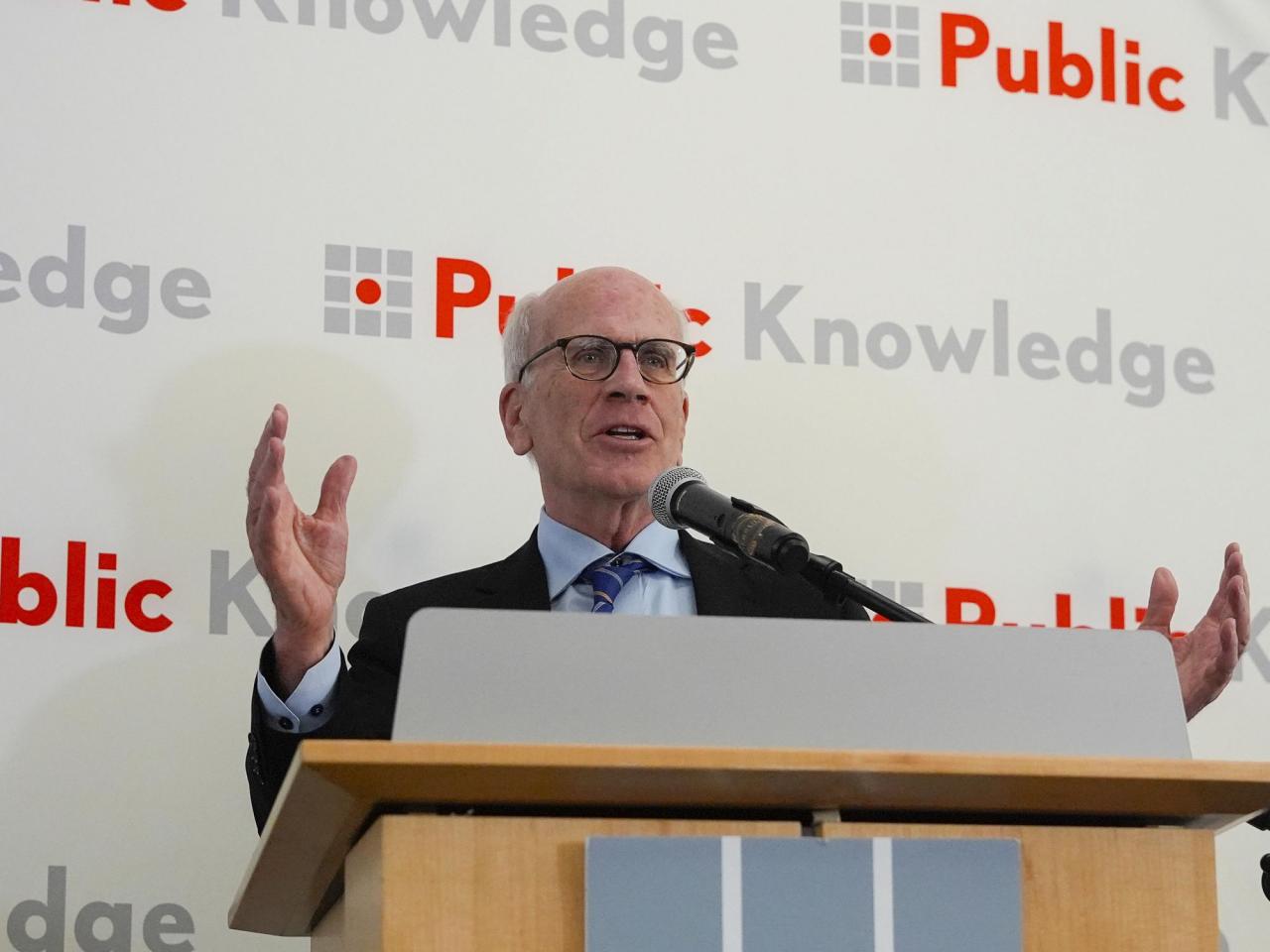Lawmakers and advocates make last-ditch push to extend affordable internet subsidy
WASHINGTON (AP) — Twenty-three million families in the U.S. will have bigger internet bills starting in May. That’s because a federal broadband subsidy program they’re enrolled in is nearly out of money.
Dozens of people joined Biden administration officials, advocates and U.S. Sen. Peter Welch, a Democrat from Vermont, at a Washington public library on Tuesday to make a last-ditch plea to extend the Affordable Connectivity Program, a subsidy created by Congress and touted by President Joe Biden as part of his push to bring internet access to every U.S. household. The program, which is set to expire at the end of May, helps people with limited means pay their broadband bills.
“They need access to high-speed internet just like they need access to electricity,” Sen. Welch told the gathering. “This is what is required in a modern economy.”
The Affordable Connectivity Program, which Congress created with $14.2 billion through the bipartisan infrastructure law, provided qualifying households with a subsidy of $30 a month to help pay their internet bills. Households on tribal land received up to $75.
That help will be slashed starting in May, when enrolled households will only receive partial credits toward their internet bills. Barring any Congressional action to infuse the Affordable Connectivity Program with more cash, the subsidies will end completely at the end of the month.
“The money has run out,” FCC Commissioner Geoffrey Starks said at the event hosted by a group called Public Knowledge, a nonprofit proponent of broadband access. “Many households will have to face a tough choice: confront that rising internet bill or disconnect them and their household from the internet.”
Nearly 80 percent of households enrolled in the program said they would have to switch to a lower-tier plan or cancel their internet service altogether without the benefit, according to a survey conducted by the FCC at the end of 2023. Many have come to depend on internet access to complete homework assignments, work from home and meet other basic needs.
“This is not about can we find the money,” Sen. Welch said. “It’s about, are we committed to the priority and well-being of really wonderful people who are struggling?”
Welch and other lawmakers from both political parties introduced legislation earlier this year to extend the program through the end of the year with $7 billion. The White House has pushed for an extension but it has not happened so far.
—
Harjai is a corps member for The Associated Press/Report for America Statehouse News Initiative. Report for America is a nonprofit national service program that places journalists in local newsrooms to report on undercovered issues.
Source: wral.com
